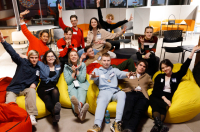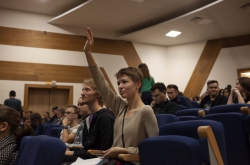On participation in an academic mobility competition
I was really worried about the competition, as I’d heard from Anastasia Egorova, who’d already participated in an academic exchange program in Chile, that the competition was pretty tough, especially among those willing to go to Barcelona. The thing is that Barcelona was exactly the place I wanted to go to. Last summer, before applying to the competition, I spent a week there and I felt that the city was just perfect for me. Already back then, I realized that I would like to spend a much longer time here.
I applied to two universities in Barcelona, the Polytechnic University of Catalonia and Pompeu Fabra University, and one university in Paris, but I didn’t really want to go there. There was a lot of paperwork, so my advice is to prepare all the documents in advance. It took me quite a while to get all the signatures, take an English exam, receive a visa and find accommodation, so take that into account.
I didn’t have any serious problems with my visa, it was ready in a couple of weeks, but I would still leave at least a month to familiarize yourself with all the details and formalities. For example, you have to find out in advance if you’re going to need a visa for less than six months or more, as this affects the number of documents you have to provide. My studies lasted for five months, so it was a little bit easier for me to get a visa.
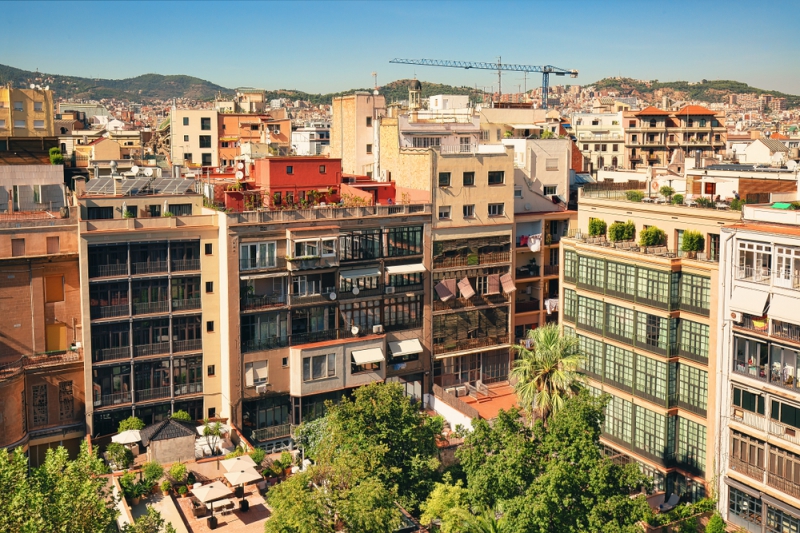
On finances
I got a scholarship from ITMO University, but it was paid in a month after the start of the program, so I had to take some money with me. Apart from that, the scholarship was hardly enough to cover even for accommodation. Fortunately, I’d saved some money before the trip and my parents could also help me. The problem with accommodation in Spain is that it’s much more expensive than in other European countries. For instance, I paid 430 euros a month for a room in a three-room apartment.
Prior to the trip, I had to provide documents confirming that I had a sum of money amounting to 500 euros for each month I was going to stay in Spain. I spent a lot of money during the first couple of months, because I took the course of the Spanish language, which costed 300 euros a month. I spent some 150 euros on food, and very little on travels, as it was all very cheap there. For example, I flew to Majorca for seven euros.
On accommodation
I didn’t get a place in a student campus like many other students and had to find accommodation on my own. Start looking for an apartment about four months prior to the start of your studies. The cheapest option costs about 350 euros. There is usually no windows in such rooms. In general, there are two types of accommodation for you there: a four-five-room apartment with a shared kitchen and bathroom (mostly rented by students) and a smaller flat where anyone can live. I lived in a three-room apartment, and my neighbors were the owner of the flat and a man from Turkey. There are several services that may come in handy when you’re looking for an apartment, e.g. Uniplaces.
A sizeable difference between the two options is that if you live in a multiroom apartment, you can put up your friends that come for a visit (though this is not possible officially, many make use of this opportunity), but this was strictly forbidden in my apartment, although I was allowed to invite a friend over as an exception.
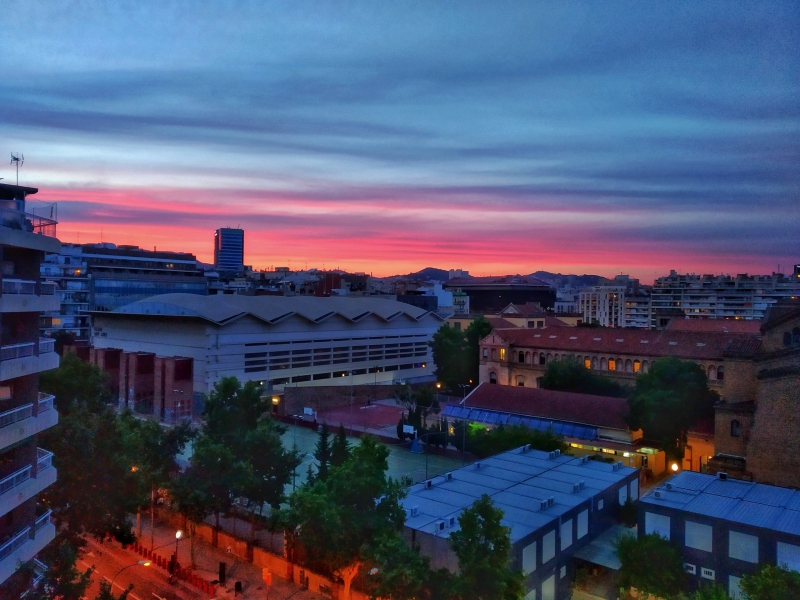
If you come to Barcelona in winter, you have to be prepared for the cold. The thing is, it’s not only 10°C outside: this is the temperature that reigns at most houses, too. In this sense, the situation here is worse than in Russia where all buildings have heating on in the winter season. Spain has no central heating, everyone makes do with warm clothing and radiators. This was what caused me to catch a cold.
I had a spacious room with a huge window overlooking an old church and a football pitch, you could get a glimpse of the mountains too. A room like this is a rare treat in Barcelona because everyone literally fights over a room with a window. The so-called well houses are also common there, but they differ from the St. Petersburg ones in the size of the inside courtyard. In Barcelona, it’s not as much of a courtyard as it is a narrow shaft-like space where light only cuts through to the higher floors’ windows, so the higher you live the better. I lived on the highest floor of my house.
On transport
It took me some 20 minutes to get to the university by metro, while the journey back home by foot amounted to 35-40 minutes. There is a popular transport pass for tourists in Barcelona, T10: it is intended for 10 commutes and costs 10 euros, but this can put you to disadvantage if you’re staying for a longer period of time. A more favorable option is to buy a 100-euro unlimited travel ticket lasting for three months. The system didn’t allow for student travel passes, unfortunately.
On languages in Barcelona
The situation when you learn Spanish, come to Spain to practice it, but locals speak to you in Catalan is not uncommon. The citizens of Barcelona are bilingual and speak both languages. Moreover, in Spain, it’s quite cheap to learn any language except for Spanish. For example, Catalan language courses can cost you 40 euros a month, while Spanish intensive courses cost 250-300 euros on average.
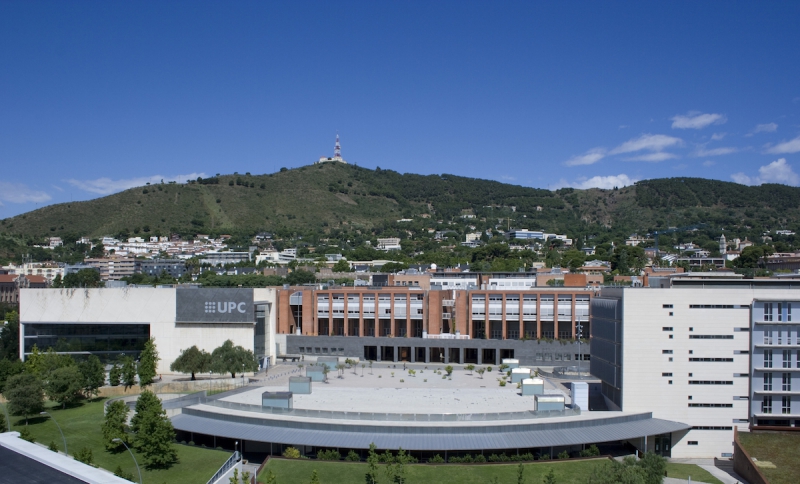
On studies in the Polytechnic University of Catalonia
The program I studied on was called Innovation and Research in Informatics (MIRI). I chose four disciplines, all of them in the field of programming. Because I enrolled in the Faculty of Programming, I encountered a lot of new information. I knew only the basics of programming at the beginning of my studies, while all of the other students knew it very well. The subjects I chose were related to 3D modeling and computer graphics. I also studied game theory. The lecturers were all very highly qualified and open, always willing to help. Grading was the same across all the disciplines: the final mark was comprised of 30% lab work, 30% practice and 40% exams. In the end, all lab works clumped into one big common projects, and the exams were so difficult that you had to understand it all to pass.
I studied alongside people from all over the globe: the US, Mexico, Poland, Finland, France, Spain, Portugal, Ecuador, Peru and other countries. But I didn’t meet any other Russian students there.
On affordable traveling
There is an organization in Barcelona called Erasmus Barcelona. I had nothing to do with Erasmus, but luckily any student coming to the city for an exchange semester could participate in its events. Erasmus Barcelona was founded by a foreigner called Shaz, he organizes inexpensive tours throughout Spain and other European countries. I visited the south of France (the cities Toulouse and Carcassonne), Andorra and the north of Spain, the place in which a couple of Game of Thrones episodes were set.
The tours were organized on a weekly basis. Shaz turned his name into a brand: it’s written on the tourist bus, and if you write it on your wrist, this means that you are part of the Shaz List and can dine or enter into a club for free and outside of the regular queue.
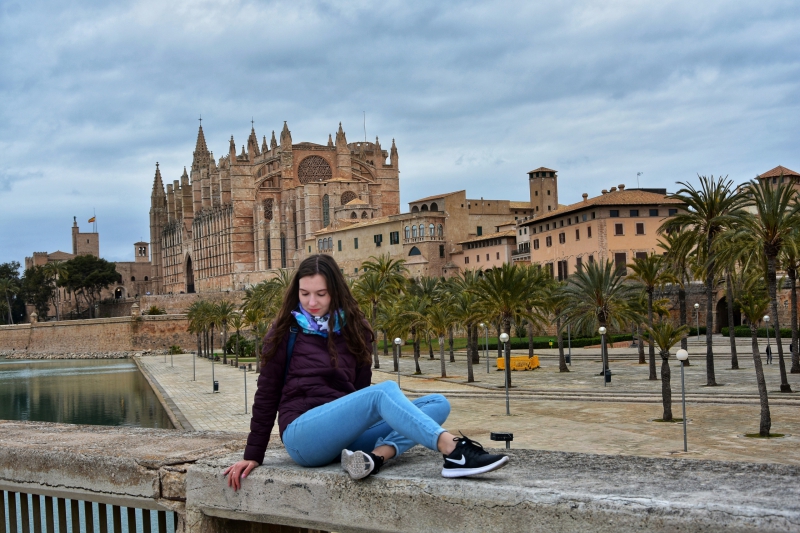
On life hacks
It’s better not to go to Barcelona’s main beach: a more fitting option could be found in the town of Badalona, which is part of Barcelona but has fewer people and many beautiful beaches.
It’s important to always keep an eye on your belongings: there are a lot of pickpockets in Barcelona, and this is obvious.
You also have to decide in advance on how you are going to pay, in cash or by card. In my experience, cash withdrawal always came with an extra fee. I found it more convenient to pay by card.
On the academic mobility contest
I did my Bachelor’s degree at ITMO University and used to think that doing a semester exchange abroad is something from the realm of the extraordinary. Having attended the meeting on exchanges, I finally decided to apply and didn’t regret it a bit. Right now, I am considering doing another exchange in a different country next year.



